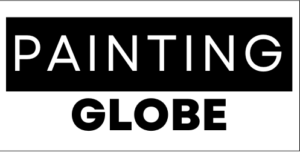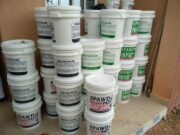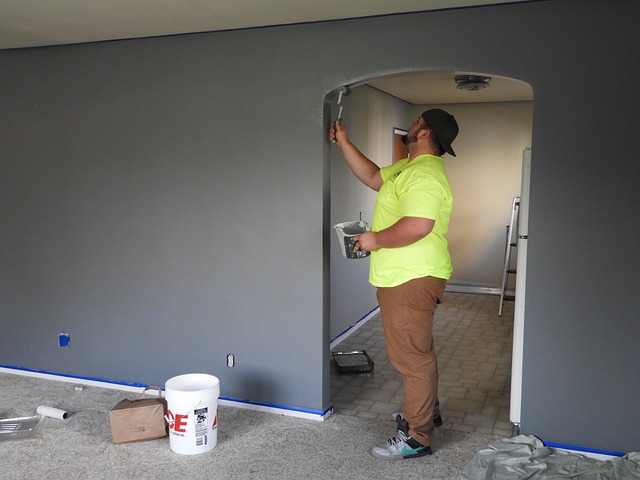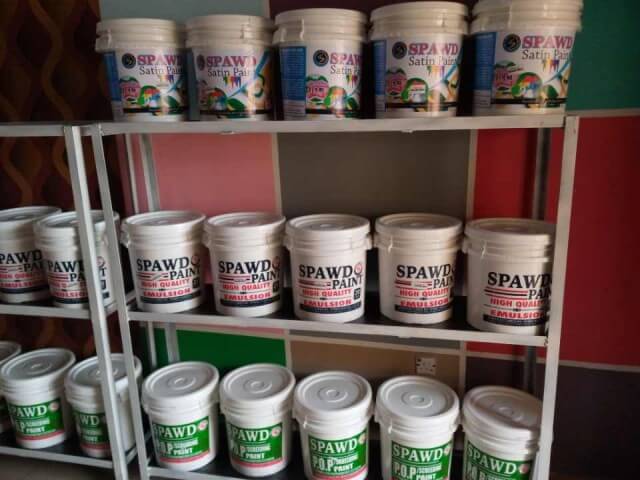If you have a passion for colors, creativity, and transforming spaces, becoming a professional painter can be a fulfilling and lucrative career.
In Nigeria, where the construction and decoration industries are growing rapidly, the demand for skilled painters, both in residential, commercial, and industrial settings is high.
But how do you become a certified professional painter in Nigeria?
What qualifications do you need?
What steps should you take to enter this industry and stand out as a reputable expert?
This comprehensive guide will walk you through everything you need to know, from the basics of painting, certifications, training options, to building your brand as a professional painter in Nigeria.
Table of Contents
- Comprehending the Role of a Professional Painter
- Why You Need Certification
- The Basic Skills and Knowledge Required
- The Educational Pathways to Becoming a Painter in Nigeria
- Certification and Licensing Bodies in Nigeria
- How to Get Certified as a Professional Painter in Nigeria
- Training and Apprenticeships: The Hands-On Approach
- Recommended Courses and Institutions
- Tools, Materials, and Safety Practices Every Painter Must Know
- Building a Portfolio and Gaining Experience
- Registering Your Painting Business
- Networking and Joining Professional Associations
- Marketing Yourself as a Certified Professional Painter
- Career Growth and Opportunities in Nigeria
- Common Challenges and How to Overcome Them
- FAQs about Becoming a Certified Painter in Nigeria
Conclusion
1. Comprehending the Role of a Professional Painter
Professional painters do more than just apply paint to walls. Their work involves preparing surfaces, choosing the right types of paints and finishes.
Understanding color theory, and applying techniques that ensure durability and beautiful appeal.
In Nigeria, painters may work on:
- Residential homes (interior and exterior painting)
- Commercial buildings and offices
- Industrial sites (e.g., protective coatings)
- Artistic and decorative painting (murals, faux finishes)
- Furniture and cabinetry painting and refinishing
Successful painters combine technical skill, creativity, attention to detail, and knowledge of safety standards to deliver quality results.
2. Why You Need Certification
Certification in painting validates your skills and professionalism.
It assures prospective clients and employers that you are competent, reliable, and knowledgeable about industry standards and best practices.
The benefits of becoming a certified painter include:
- It Increases your credibility and trustworthiness
- It provides you with better job and business opportunities
- It enables you to access higher-paying contracts
- It provides you with the ability to work on specialized projects
- Provides you with competitive advantage over uncertified painters
- Provides you with access to industry networks and resources
In Nigeria’s competitive market, certification is a strong asset that can open doors and help you build a lasting career.
3. The Basic Skills and Knowledge Required
Before pursuing formal certification, you should endevour to develop the following foundational skills:
- Surface Preparation: Cleaning, sanding, filling cracks, priming
- Knowledge of Paint Types: Oil-based, water-based, enamel, varnish
- Color Theory: Understanding color mixing, contrasts, and harmony
- Application Techniques: Brush, roller, spray painting
- Safety Measures: Handling chemicals, using ladders and scaffolds safely
- Time and Project Management: Planning and executing painting projects efficiently
If you’re starting from scratch, it’s advisable to gain some practical experience or enroll in a short introductory course.
4. The Educational Pathways to Becoming a Painter in Nigeria
In Nigeria, becoming a certified painter typically involves a blend of formal education and practical experience.
Basic Educational Requirements
While no formal academic degree is strictly required to start a painting career, having at least a secondary school certificate (SSCE/WAEC) improves your chances of accessing recognized training programs.
Technical and Vocational Education
The best pathway for you to become a certified painter is to enroll in technical and vocational training institutions that offer painting and decorating courses.
Examples include:
- Technical Colleges (state-owned or private)
- Polytechnics with painting-related departments
- Vocational Training Centers (government or private)
Courses usually cover:
- Painting techniques and theory
- Surface preparation and finishing
- Safety and environmental regulations
- Use and maintenance of painting tools
- Customer relations and business skills
These programs typically last from a few months to a year.
5. Certification and Licensing Bodies in Nigeria
In Nigeria, painting certification can be obtained through recognized bodies such as:
1. National Board for Technical Education (NBTE)
The NBTE oversees technical and vocational education and awards certifications for technical courses.
2. Industrial Training Fund (ITF)
The ITF facilitates training and certification for industrial workers, including painters.
3. Nigerian Institute of Paints and Coatings (NIPC)
While still growing, NIPC offers specialized certifications for professional painters, including industrial and protective coatings.
4. Other Private Certification Bodies
Some private training centers and paint manufacturers (e.g., Dulux Nigeria, Berger Paints, and Spawd Paints) offer certified training programs and workshops.
6. How to Get Certified as a Professional Painter in Nigeria
Step 1: Enroll in a Recognized Training Program
Join a painting course at a technical college, polytechnic, or vocational center accredited by NBTE or other regulatory bodies.
Step 2: Complete the Training Program
Complete all practical and theoretical modules with good performance.
Step 3: Undertake Industrial Attachment or Apprenticeship
Gain hands-on experience under the supervision of experienced painters or companies. This is often a mandatory part of certification.
Step 4: Pass the Certification Exams
Take the required practical and theoretical exams administered by the certifying institution or body.
Step 5: Obtain Your Certificate
After passing, receive your certificate of competency as a professional painter.
7. Training and Apprenticeships: The Hands-On Approach
In Nigeria, many painters learn through apprenticeships, working alongside skilled painters to acquire on-the-job training.
Apprenticeships provide you with the following:
- It provides you with real-world experience with diverse painting projects
- It provides you with the understanding of local materials and conditions
- It provides you with learning business and customer management skills
- It also provides you with networking with suppliers and contractors
To find an apprenticeship:
- Visit local painting companies like Spawd and offer to learn
- Use industry associations to find mentorship programs
- Leverage community recommendations and social media groups
8. Recommended Courses and Institutions
Here are some notable institutions where you can pursue painting certifications in Nigeria:
- Lagos State Technical College – Offers painting and decorating courses.
- Federal Polytechnic Idah – Has vocational programs in construction and painting.
- Kano State Technical College – Provides painting and finishing trades.
- National Industrial Training Fund (NITF) – Runs certified vocational training.
- Private Institutes and Paint Manufacturers – Such as Berger Paints Training Academy and Spawd Painters Training Academy.
Additionally, some online platforms offer theoretical courses on painting and decoration, but practical experience is crucial.
9. Tools, Materials, and Safety Practices Every Painter Must Know
Professional painters must master the use of:
- Brushes, rollers, and spray guns
- Scrapers, sandpaper, and putty knives
- Primers, sealants, and various paint types
- Ladders, scaffolds, and protective gear
Safety Practices
- Use your masks and gloves to protect you against fumes and chemicals
- Ensure you have adequate ventilation when working with paint
- Use harnesses and helmets when working at heights
- Store your leftover materials properly to avoid spills and fire hazards
- Follow Nigerian OSHA (Occupational Safety and Health Act) regulations
10. Building a Portfolio and Gaining Experience
As you complete projects, document your work with photos and client testimonials. A strong portfolio helps you:
- Showcase your skills to your potential clients
- Apply for better job positions
- Win contracts as an independent painter
Volunteer for community painting projects or collaborate with other interior designers to diversify your portfolio.
11. Registering Your Painting Business
If you plan to run your own painting company:
- Register your business with the Corporate Affairs Commission (CAC)
- Obtain all the necessary permits from your local government
- Acquire your tax identification and comply with tax regulations
- Get insurance to protect your business and employees
12. Networking and Joining Professional Associations
Join bodies like:
- Nigerian Institute of Painters and Decorators
- Association of Nigerian Decorators and Painters
Networking helps you to:
- Access industry insights and training updates
- Connect with suppliers and contractors
- Participate in exhibitions and trade fairs
13. Marketing Yourself as a Certified Professional Painter
Effective marketing strategies include:
- Creating a professional website and social media pages
- Using online platforms like Paintingglobe.com to share your expertise
- Encouraging satisfied clients to leave reviews and referrals
- Partnering with real estate developers, architects, and contractors
- Offering specialized services (eco-friendly paints, decorative finishes)
14. Career Growth and Opportunities in Nigeria
Certified painters in Nigeria can progress to:
- Supervisors or site managers on construction projects
- Specialized painters (industrial coatings, anti-corrosion)
- Interior decorators or color consultants
- Business owners with painting contracting companies
- Trainers and educators in painting schools
15. Common Challenges and How to Overcome Them
- Limited access to quality training: Seek scholarships, online courses, or company-sponsored training.
- Competition with unskilled labor: Emphasize your certification and quality workmanship.
- Access to quality materials: Build relationships with reputable suppliers.
- Safety risks: Always prioritize training on safety and use protective gear.
16. FAQs about How To Become a Certified Painter in Nigeria
Q1: Is formal education mandatory to become a painter?
A: No, but having at least secondary education helps you enroll in certified training programs.
Q2: How long does it take to become certified?
A: Typically 6 months to 1 year depending on the program and apprenticeship.
Q3: Can I work without certification?
A: Yes, but certification increases your credibility and earning potential.
Q4: Where can I get painting jobs?
A: Construction companies, property developers, maintenance firms, and private clients.
Conclusion
To become a certified professional painter in Nigeria is a journey that blends formal education, hands-on experience, and continuous learning.
With the growing construction and real estate sectors, the demand for skilled painters remains strong.
If you are passionate about painting, investing time and effort into proper training and certification will pay off with rewarding career opportunities, business growth, and personal satisfaction.
For more resources, training recommendations, and industry news, keep visiting paintingglobe.com — your ultimate guide to the paint and decoration industry in Nigeria.































